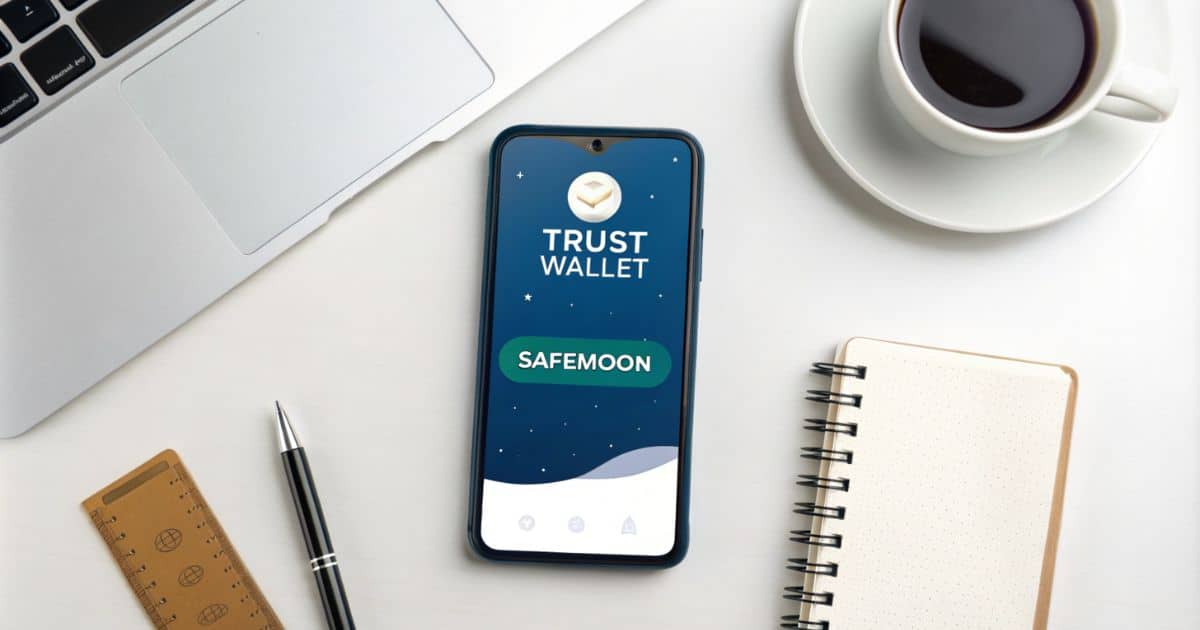Have you ever wondered how to check credit score without SSN? Whether you’re new to the U.S., an international student, or simply someone who doesn’t have a Social Security Number, knowing your credit status is crucial for financial health. Yet, without an SSN, accessing this information may seem challenging, if not impossible. But don’t worry—there are reliable ways to check your credit score using alternatives like an ITIN (Individual Taxpayer Identification Number) and other identification methods that can help open financial doors.
In this guide, we’ll walk you through exactly how to navigate the credit system without an SSN, the alternative options available, and tips for maintaining a healthy credit history. Let’s explore the options that make credit checks accessible to everyone, regardless of SSN status, and see how you can begin building or monitoring your financial standing today.
Key Takeaway
- Building credit without an SSN is possible through alternative identification methods like ITINs.
- Credit bureaus like Experian, Equifax, and TransUnion accept ITINs, making it easier to access credit scores.
- Secured credit cards, credit builder loans, and rent payment reporting can help establish credit from scratch.
- Financial apps and credit monitoring services like Experian Boost allow non-SSN holders to track and improve their credit.
- Using alternative data, such as utility and rent payments, boosts creditworthiness for those without traditional credit histories.
- Staying informed about credit-building strategies and monitoring progress ensures long-term financial health and opportunity expansion.
Understanding Credit Scores Without an SSN

Curious about how credit scores work if you don’t have a Social Security Number (SSN)? Let’s dive into the essentials of credit scores, why they matter, and how you can monitor yours even without an SSN. Credit scores play a key role in determining your financial opportunities—from securing a loan to renting an apartment. Without a traditional SSN, accessing your credit score may feel complex, but there are alternatives designed to help people in unique situations, like international students or non-U.S. residents, track and improve their credit.
Why Is a Credit Score Important?
A credit score is more than just a number—it’s a snapshot of your financial responsibility. Lenders and institutions look at your credit score to assess your trustworthiness for loans, credit cards, and even housing applications. A higher credit score often means access to better interest rates and loan terms, while a low score may restrict financial options. So, monitoring and understanding your credit score can be crucial in making smart financial choices.
Why is an SSN Typically Required?
In the U.S., an SSN is the primary identification number used to track financial activities and credit history. The three major credit bureaus—Equifax, Experian, and TransUnion—rely on the SSN as a unique identifier, making it easier to compile and manage credit information. However, if you don’t have an SSN, there are still ways to establish and track your credit.
Alternative Identifiers for Credit Checks
If you’re navigating the credit world without an SSN, there are a few options available for identifying yourself:
- Individual Taxpayer Identification Number (ITIN): The ITIN is a tax processing number issued by the IRS for individuals who are required to have a taxpayer ID but don’t qualify for an SSN. Many credit bureaus now accept ITINs as a way to access credit information.
- Foreign Passport or Other Government-Issued ID: Some credit-reporting agencies and financial institutions may accept alternate forms of ID, such as a foreign passport, to verify your identity and allow access to your credit report.
- International Credit History: Certain companies specialize in transferring international credit histories to the U.S., which can be helpful for newcomers who already have a credit record in another country.
Using these alternatives can help you establish a credit profile in the U.S. and make it easier to monitor your financial progress over time.
Even without an SSN, you can still check and build your credit score. From using an ITIN to providing alternative identification, several avenues allow you to access your credit report and ensure you’re on the right financial path.
Options for Non-U.S. Citizens or Individuals Without SSNs

If you’re a non-U.S. citizen or an individual without an SSN, you may wonder how you can access your credit score or build credit in the United States. The good news? There are practical solutions tailored just for people in your situation, whether you’re an international student, an expat, or a newcomer aiming to establish financial stability.
1. Using an ITIN (Individual Taxpayer Identification Number)
The Individual Taxpayer Identification Number, or ITIN, is one of the most effective tools for those without an SSN. Issued by the IRS, the ITIN is designed for individuals who need to pay U.S. taxes but aren’t eligible for an SSN. Fortunately, many credit bureaus and lenders accept the ITIN as an alternative to the SSN, making it a valuable asset in building and monitoring your credit.
- How to Obtain an ITIN: You can apply for an ITIN directly through the IRS using Form W-7, which requires basic identification documents. Once approved, you’ll have a unique identification number that can be used for various financial purposes.
- Credit Bureaus Accepting ITIN: While policies may vary, major credit bureaus such as Experian and TransUnion typically accept ITINs. It’s a good idea to verify with the bureau to ensure they can process your ITIN.
2. International Students and Expats
If you’re studying or working in the U.S. temporarily, you might not qualify for an SSN, but this doesn’t mean you can’t access or start building your credit. Several banks and institutions have special programs specifically for international students and expats. These programs often allow you to:
- Open a Credit Card with Limited History Requirements: Some financial institutions offer “secured” or “student” credit cards that don’t require extensive credit history. These cards allow you to start building credit while enjoying the benefits of a standard credit card.
- Access Banking Services That Help Track Credit Health: Banks like Chase, Bank of America, and Capital One often have tailored services for international clients, making it easier to keep an eye on your financial status.
3. Options for Recent Immigrants or Non-Citizens
If you’re a recent immigrant, you may already have an established credit history in your home country. Companies such as Nova Credit specialize in transferring international credit records to the U.S., which can help give you a head start in building U.S.-based credit.
- How International Credit Transfer Works: Nova Credit and similar services partner with U.S. institutions to provide your credit information from your home country’s credit bureaus. This report can be used to apply for credit cards, loans, and even rental applications in the U.S.
- Benefits of International Credit Transfer: This service can save you time by providing an initial U.S. credit history, bypassing the need to start from scratch. It also enables lenders to evaluate your creditworthiness, increasing your chances of getting approved.
4. Quick Tips for Building Credit as a Non-U.S. Citizen
Establishing credit without an SSN may seem complex, but with the right tools and strategies, it’s entirely possible:
- Start with an ITIN if eligible; this will simplify the process with many credit bureaus.
- Look for secured credit cards or financial products for international clients.
- Use services like Nova Credit to transfer your existing credit history when possible.
Navigating the U.S. credit system without an SSN doesn’t have to be intimidating. With options like ITINs, international student programs, and credit transfer services, you can confidently start building a strong financial foundation, regardless of your SSN status.
Credit Bureaus and Agencies That Accept ITIN

You may be wondering, “Can I actually use my ITIN to check my credit score?” Fortunately, the answer is yes! Several credit bureaus and agencies understand that not everyone has an SSN and offer ways for you to access your credit information using an ITIN. Let’s look at the primary credit bureaus that accept ITINs and how to use them effectively.
1. Major Credit Bureaus: Equifax, Experian, and TransUnion
The three major credit bureaus in the U.S.—Equifax, Experian, and TransUnion—are widely recognized for generating the credit reports and scores that lenders rely on. Here’s how you can work with each bureau using an ITIN:
- Equifax: Equifax accepts ITINs for credit reports, but you’ll want to verify this option through their customer service to ensure they’re able to process your request. With Equifax, you can monitor your score, dispute errors, and stay on top of your credit health.
- Experian: Experian allows non-SSN holders to access credit reports and scores through ITINs, making it a great choice for international students and immigrants. Experian also offers free tools like Experian Boost, which can help improve your credit score using positive utility payments.
- TransUnion: TransUnion supports ITIN requests as well. Their robust monitoring tools and alerts can help you stay informed and proactive about any changes in your credit profile.
2. Credit Agencies That Specialize in Non-U.S. Citizens
Aside from the big three, several agencies cater specifically to people without an SSN, such as new immigrants, foreign nationals, and temporary residents. These agencies not only help with credit scores but also provide additional resources to assist in financial planning.
- Nova Credit: This agency specializes in transferring your international credit history into the U.S. system. If you’ve built a credit history abroad, Nova Credit allows U.S.-based companies to evaluate your existing creditworthiness, which can be valuable when applying for loans or credit cards.
- Self Financial: Self Financial, though not a traditional credit bureau, offers credit-building tools that don’t rely on an SSN. Their “credit builder” accounts enable you to build credit by making monthly payments that are reported to the credit bureaus, all without needing an established credit history.
3. How to Access Your Credit Score Using an ITIN
Once you’ve identified the bureau or agency that best suits your needs, follow these steps to access your credit score using an ITIN:
- Prepare Your ITIN and Documentation: Gather identification documents, including your ITIN, passport, or driver’s license, to verify your identity.
- Contact the Credit Bureau Directly: Reach out to the bureau’s customer service or visit their website to find specific instructions for non-SSN holders.
- Request Your Credit Report and Score: Once verified, you can request your credit report and score. Be sure to check your report regularly to ensure your financial data is accurate.
4. Benefits of Working with ITIN-Friendly Bureaus
Having access to ITIN-friendly credit bureaus gives you a unique advantage in maintaining and building credit in the U.S. Here are a few benefits:
- Easier Financial Monitoring: Regularly checking your credit report helps you keep track of your financial health, allowing you to take action if any issues arise.
- Builds a Financial History in the U.S.: Using your ITIN for credit checks helps establish a credit profile, giving lenders confidence in your financial reliability.
- Access to Better Financial Opportunities: As you build a credit history, you’ll likely see more financial doors open, from loans with favorable terms to credit cards with rewards.
Don’t let the lack of an SSN hold you back from building a robust financial profile. With ITIN-friendly options at Equifax, Experian, and TransUnion, as well as specialized agencies like Nova Credit and Self Financial, you have everything you need to keep an eye on your credit, boost your score, and unlock better financial opportunities in the U.S.
Steps to Check Your Credit Score Without an SSN

Checking your credit score without an SSN might seem complicated, but with a few simple steps, you can access this essential information. Whether you’re using an ITIN or other identification methods, the process is straightforward and gives you the peace of mind of knowing where you stand financially. Let’s walk through each step together.
Step 1: Gather Your Documentation
Before you start, make sure you have the right documents on hand. Since you won’t be using an SSN, you’ll need alternative forms of identification:
- ITIN (Individual Taxpayer Identification Number): This is a primary alternative to the SSN and is accepted by many credit bureaus.
- Government-Issued ID: A passport, driver’s license, or other official ID can help verify your identity.
- Utility Bills or Bank Statements: In some cases, credit bureaus may ask for additional proof of address to confirm your identity.
Having these documents ready will help streamline the process, ensuring a quicker and smoother experience.
Step 2: Choose the Right Credit Bureau or Service
Not all credit bureaus accept ITINs, so it’s essential to choose one that does. Here are some options:
- Experian: Known for its user-friendly credit tools, Experian allows ITIN holders to access their credit reports and even offers features like Experian Boost to help improve scores.
- TransUnion: With flexible options for ITIN users, TransUnion provides credit monitoring and updates to help you track your credit status.
- Equifax: Another ITIN-friendly bureau, Equifax enables you to view your credit report and stay updated on any changes.
Each bureau offers different services, so consider what’s most important to you, such as regular updates, monitoring tools, or credit-building features.
Step 3: Request Your Credit Report Online or by Phone
Once you’ve selected a credit bureau, you can request your credit report. Here’s how:
- Online Requests: Many bureaus have online portals where you can enter your ITIN and other details to access your report. Just follow the on-screen instructions to complete your request.
- Phone Requests: If you prefer, you can call the bureau directly. Be prepared to answer a few questions to verify your identity, and have your ITIN and identification documents ready.
- Mail Requests: Some bureaus allow you to request a report by mail. This method is slower but can be helpful if you’re more comfortable submitting hard copies of documents.
Step 4: Review Your Credit Report for Accuracy
Once you’ve received your credit report, take time to review it thoroughly. Checking for accuracy is vital, as errors in your report can negatively impact your score. Here’s what to look for:
- Personal Information: Ensure your name, address, and ITIN are correct.
- Credit Accounts: Verify that all listed accounts are yours and that there are no unauthorized accounts.
- Payment History: Double-check that payments are reported accurately, as missed payments can lower your score.
- Credit Inquiries: Look over recent credit inquiries to ensure they’re legitimate.
If you spot any discrepancies, contact the credit bureau immediately to dispute them. Correcting errors can help improve your score and protect your financial health.
Step 5: Set Up Credit Monitoring (Optional)
To keep track of changes and ensure accuracy, consider setting up credit monitoring. Many credit bureaus offer this service for ITIN holders, alerting you whenever there are updates or suspicious activities in your credit file. This feature can provide peace of mind, especially if you’re actively building your credit.
- Experian and TransUnion offer monitoring tools designed for easy tracking.
- Equifax includes options to notify you about changes to your report.
Checking your credit score without an SSN is entirely achievable by following these steps. From gathering documentation to selecting a bureau that accepts ITINs, you’re fully equipped to monitor and manage your credit health. By staying proactive, you can build a solid financial foundation and enjoy the benefits of a good credit score, even without an SSN.
Alternatives to Traditional Credit Score Checks

If you’re navigating the credit world without an SSN, you may wonder if there are other ways to monitor your financial health and creditworthiness. The answer is yes! Beyond traditional credit bureaus, a range of alternative options can help you stay on top of your credit status. Whether you’re just starting to build credit or looking for innovative ways to track it, these alternatives offer flexibility, convenience, and insights.
1. Credit Monitoring Services for Non-SSN Holders
Many credit monitoring services cater to people without an SSN, making it easier for you to keep an eye on your credit report and stay informed of any changes.
- Credit Karma: With a free-to-use model, Credit Karma offers access to your credit score and report without needing an SSN. You can also set up notifications for changes, ensuring you’re aware of any adjustments.
- Experian Free Credit Monitoring: Experian provides a free monitoring tool that accepts ITINs and alerts you to changes in your credit score. This option is ideal for tracking your credit health over time.
Using these tools, you can feel more confident knowing your financial standing is secure and any unexpected changes will be immediately flagged.
2. Financial Services Apps That Help Track Credit Health
If you prefer a more hands-on approach, several financial apps offer credit-tracking features. These apps are a great choice if you’re looking for more control over your finances and additional budgeting or spending insights.
- Mint: Known for its budgeting features, Mint also lets you view your credit score for free. This app provides a comprehensive financial overview, from budgeting to bill tracking, which can be valuable if you’re new to building credit.
- Chime: Chime offers an integrated approach to finances, providing users with both banking and credit-building tools. With features like Credit Builder, Chime reports your positive payment history to the credit bureaus, helping you build credit while managing your day-to-day finances.
3. International Credit History Services
If you’ve moved to the U.S. from another country, chances are you already have a credit history abroad. Some companies specialize in bringing your international credit history into the U.S. credit system, which can give you a head start in building local credit.
- Nova Credit: Nova Credit partners with major U.S. lenders and allows them to view your international credit file, bridging the gap between your foreign credit history and U.S.-based credit opportunities.
- Credit Passport: This service compiles your international credit profile, helping U.S. lenders assess your financial reliability. It’s an excellent choice for new immigrants who want to access credit opportunities without waiting to build a new history from scratch.
4. Using Alternative Data for Credit Health
If traditional credit scoring methods feel limiting, alternative data can give you a more personalized credit profile. This data includes rent payments, utility bills, and even phone bills—all factors that reflect your financial responsibility and help boost your creditworthiness.
- Experian Boost: With Experian Boost, you can add positive utility and telecom payments to your credit report, which may raise your credit score. This option is ideal for those looking to increase their credit score without traditional credit-building methods.
- RentTrack: By reporting your rent payments to the credit bureaus, RentTrack allows renters to build credit without needing a loan or credit card. For many people without an SSN, this is an effective way to demonstrate financial responsibility.
You don’t need a traditional credit score check to keep tabs on your financial health. With tools like credit monitoring services, international credit transfers, and alternative data reporting, you have plenty of ways to track and build credit on your terms. By exploring these innovative options, you can stay informed and proactive, paving the way to a strong financial foundation, even without an SSN.
Building and Maintaining Good Credit Without an SSN

If you’re aiming to build and maintain a solid credit score without an SSN, you’re not alone—and the good news is that it’s completely doable. With the right approach, you can establish a positive credit history, open up financial opportunities, and achieve peace of mind knowing that your finances are on track. Let’s explore the steps you can take to develop a strong credit profile, even without a Social Security Number.
1. Start with an ITIN
The Individual Taxpayer Identification Number (ITIN) is one of the most practical tools for building credit without an SSN. Many banks, credit bureaus, and financial institutions accept the ITIN as a substitute for the SSN, making it a powerful asset.
- Use Your ITIN to Open Accounts: Many credit cards and bank accounts are now available to ITIN holders, allowing you to establish financial accounts in the U.S. If you’re starting from scratch, consider applying for a secured credit card—this is one of the most effective tools for building credit over time.
- Report Payments to the Bureaus: As an ITIN holder, your payments may not automatically appear on your credit report. To ensure your positive payment history is reported, look for credit cards or lenders that specifically offer reporting to all major bureaus, including Equifax, Experian, and TransUnion.
2. Explore Secured Credit Cards and Credit Builder Loans
If you’re new to credit, secured credit cards and credit builder loans are excellent options for establishing your profile. Both require upfront deposits, which minimizes the lender’s risk and makes them more accessible to people without a long credit history.
- Secured Credit Cards: These cards require a deposit, which becomes your credit limit. By making regular, on-time payments, you demonstrate financial responsibility. Many banks offer secured credit cards for ITIN holders, and your payment history will contribute positively to your credit score.
- Credit Builder Loans: Offered by certain banks and financial services, credit builder loans allow you to “borrow” a set amount, which you repay monthly. The bank holds the funds in a secure account, and once you’ve paid it off, the funds are yours. It’s an effective way to build credit without taking on significant debt.
3. Leverage Alternative Data to Boost Your Score
Your credit score isn’t limited to traditional accounts like credit cards or loans. Alternative data, such as rent payments, utility bills, and phone bills, can also contribute to your credit history. These payments show that you’re financially responsible and capable of handling recurring expenses.
- Experian Boost: By linking your bank account, Experian Boost allows you to add positive utility and telecom payments to your credit report, which can immediately improve your credit score.
- Rental Payment Reporting Services: Services like RentTrack and PayYourRent allow you to report on-time rent payments to the credit bureaus, helping you build credit without relying on credit cards or loans.
4. Keep Track of Your Credit Utilization
Credit utilization—how much of your available credit you’re using—plays a significant role in your score. Aim to use less than 30% of your available credit limit. For example, if your secured credit card has a $500 limit, try to keep your balance under $150. Lower utilization ratios reflect positively on your credit score and indicate responsible credit management.
5. Monitor Your Credit Regularly
Staying informed about your credit status helps you catch any inaccuracies or fraudulent activity early. Many credit bureaus and financial apps offer free credit monitoring services, so take advantage of them.
- Credit Karma and Experian: Both offer free credit monitoring and allow you to see changes in your score over time.
- Annual Credit Report: ITIN holders are also entitled to a free annual credit report from each of the three major bureaus, helping you monitor your progress and check for errors.
6. Consistently Make On-Time Payments
Payment history is the single most significant factor in your credit score. Making on-time payments shows lenders that you’re reliable and financially responsible. Set reminders or use automatic payments to ensure you never miss a due date.
- Tip: Even if you’re using a secured credit card, treat each payment as seriously as if it were a high-limit card. Your commitment to timely payments will go a long way in building your score.
Building and maintaining good credit without an SSN is all about persistence, consistency, and knowing which resources to leverage. By using an ITIN, exploring credit builder loans, reporting alternative data, and monitoring your progress, you can effectively establish and sustain a strong credit profile. Remember, every small step you take adds up to a future filled with more financial possibilities and security.
Common Challenges and How to Overcome Them

Building credit without an SSN presents unique challenges, but with a bit of patience and the right strategies, these obstacles can be easily managed. Let’s explore some common issues you may encounter and practical ways to overcome them, so you can confidently work towards a strong credit profile.
1. Limited Credit History
One of the biggest challenges faced by individuals without an SSN is a lack of established credit history. This can make it difficult to qualify for traditional credit products, as lenders rely heavily on previous credit records to assess risk.
- Solution: Start small with tools designed for beginners, like secured credit cards or credit builder loans. These products don’t require extensive credit history and are specifically designed to help you get started. As you consistently make payments, your history will gradually build, making it easier to qualify for more products in the future.
2. Identity Verification Challenges
When applying for credit or accessing your credit report, you may find that some institutions rely heavily on SSNs for identity verification. This can be a barrier, but there are workarounds that can help.
- Solution: Use alternative identification methods, such as an ITIN, along with government-issued photo ID. Many credit bureaus and lenders now accept ITINs as a valid form of identification, and having additional documents on hand, like a passport or driver’s license, can further support your application.
3. Limited Reporting Options
For individuals without an SSN, not all financial activity may automatically be reported to the major credit bureaus. This can slow down your credit-building efforts if key information, like rent or utility payments, isn’t being considered.
- Solution: Take advantage of services that report alternative data to the credit bureaus. For example, Experian Boost allows you to report utility and telecom payments, while RentTrack can report your rent payments. By ensuring more of your financial activity is reported, you give yourself a better chance of improving your credit score.
4. Higher Costs for Certain Credit Products
Sometimes, secured credit cards or credit-building loans come with higher fees or interest rates, as lenders perceive individuals without a traditional credit history as higher-risk borrowers. This can make credit-building more expensive if not managed carefully.
- Solution: Research options thoroughly before committing. Some secured credit cards offer low fees and even provide a path to an unsecured card over time. Additionally, credit unions often have favorable rates and terms for credit builder loans and may be more flexible with identification options.
5. Risk of Credit Scams and Fraud
Without the security of an SSN, you might find yourself more vulnerable to credit scams that target those new to the U.S. financial system. Predatory lenders, identity theft, and scams promising “quick credit fixes” are all potential pitfalls.
- Solution: Protect yourself by working only with reputable financial institutions and credit bureaus. Be cautious of unsolicited offers that seem too good to be true, and consider using credit monitoring services that can alert you to suspicious activity. The Federal Trade Commission (FTC) also provides valuable resources for spotting and avoiding scams.
6. Lack of Access to Financial Education
Understanding the U.S. credit system can be challenging, especially if you’re new to the country. Without a clear understanding, it’s easy to make mistakes that could negatively impact your credit.
- Solution: Take advantage of financial education resources available online. Many credit bureaus and financial institutions offer free resources, workshops, and articles to help you understand credit basics. Websites like the Consumer Financial Protection Bureau (CFPB) provide in-depth guidance on managing and improving credit.
While there may be challenges to building credit without an SSN, each one has a solution within reach. By using alternative identification methods, securing products like secured credit cards, and educating yourself about credit-building tools, you can overcome these obstacles. Remember, with consistency and careful management, you can successfully build and maintain good credit, opening doors to greater financial opportunities over time.
Conclusion
As you can see, checking and building your credit score without an SSN is not only possible but highly achievable with the right tools and approach. Whether you’re using an ITIN, exploring credit builder loans, or leveraging alternative data, there are many ways to navigate the U.S. credit system and strengthen your financial foundation. Imagine the doors that can open once you establish solid credit: easier access to loans, better interest rates, and even a smoother rental process.
So, are you ready to take control of your financial future? Start small, stay consistent, and take advantage of the resources available to you. Each step you take—whether it’s signing up for a secured credit card, monitoring your report, or reporting rent payments—brings you closer to a stronger credit profile and financial peace of mind.
Remember, building credit without an SSN may require patience, but it’s a journey that pays off. With persistence and proactive steps, you’ll soon see your credit history working in your favor, opening up opportunities that once seemed out of reach. Now is the time to act—embrace these tools, start building your credit, and watch your financial options expand.
FAQ
What is an ITIN, and how does it help in building credit?
An ITIN (Individual Taxpayer Identification Number) is issued by the IRS to individuals who don’t qualify for an SSN but need to pay taxes. Many credit bureaus accept ITINs, allowing non-SSN holders to access and build their credit in the U.S.
How to check credit score without SSN?
Yes, you can check your credit score using an ITIN. Credit bureaus like Experian, Equifax, and TransUnion allow individuals without an SSN to view their credit reports if they have an ITIN.
What credit-building options are available for people without an SSN?
Options include secured credit cards, credit builder loans, and alternative data reporting, like adding rent and utility payments to your credit report. These tools help establish a credit history from scratch.
How do secured credit cards help in building credit?
Secured credit cards require a deposit, which serves as collateral and becomes your credit limit. By using the card responsibly and making on-time payments, you can build a positive credit history.
What is alternative data, and how does it impact my credit score?
Alternative data includes rent payments, utility bills, and phone bills. Services like Experian Boost and RentTrack allow you to report this data, showing your financial responsibility and potentially improving your credit score.
Are there any risks in building credit without an SSN?
Some risks include higher fees on certain credit products, limited reporting options, and vulnerability to credit scams. Choosing reputable institutions and monitoring your credit regularly can help mitigate these risks.
How can I monitor my credit score if I don’t have an SSN?
You can use credit monitoring tools like Credit Karma, Experian, or free annual reports from the major credit bureaus. These services help you track changes, spot errors, and keep an eye on your financial health.
Can I transfer my international credit history to the U.S.?
Yes, companies like Nova Credit specialize in transferring international credit history to the U.S., helping immigrants leverage their existing credit profile for better financial opportunities.
What are the best practices for maintaining good credit without an SSN?
Make on-time payments, keep credit utilization low, monitor your credit report for errors, and use financial tools like secured credit cards. Consistency and responsible credit management are key for maintaining a good score.












